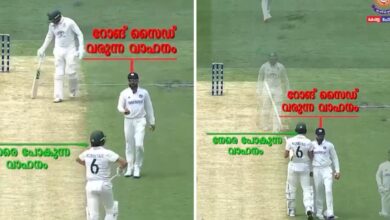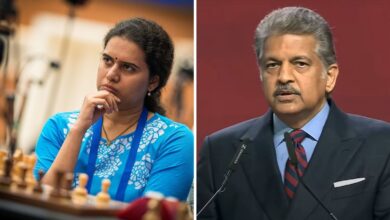Half Girlfriend: Why are Bollywood movies desperate to end with women becoming ‘full girlfriends’?

Last night I met two friends I went to school with. We live in different cities, and we hadn’t met each other for five years, so apart from taking our first photo together (in 13 years of friendship), we made our way through two towers of beer and talked about everything. We talked about our parents and what they’d say if we tried to discuss boys with them, grumbled about college and the future, and then landed, quite smoothly, at our own love lives.
The three of us have grown apart (and then stumbled back to each other almost inevitably), but until last night, none of us were quite sure what the other thought about relationships — not with particular people, but as a thing. But the conclusion to love conversations came more easily than any of us expected: at 21, we happily floated in and out of wanting, not wanting, and half-wanting men and women as we went about figuring out the rest of our lives.
So watching Mohit Suri’s Half Girlfriend (based on Chetan Bhagat’s eponymous novel) the morning after that conversation is, to put it mildly, maddening. Everyone says that Bhagat wrote his novel imagining it as a Bollywood movie. Maybe it shouldn’t be surprising that neither Bhagat nor Bollywood knew what to do with all the potential that’s packed into the fantastic inventive phrase ‘half girlfriend’. A phrase at last for at least some of the in-between places we can be in relationships.
Suri went a step ahead, rather literally, and decided to imagine the book’s protagonist Riya (Shraddha Kapoor) as a half person. She isn’t even in the in-between space that is half girlfriend for very long. After all, we are told, with being half girlfriend comes guilt and wistfulness; a longing to be full girlfriend, and subsequently wife and mother. As Riya tells Madhav Jha (Arjun Kapoor), she’d said she would be his half girlfriend only because she was running, at lightning speed, away from love. Why? Because she had seen how much her father abused her mother.
When Bhagat’s book came out in October 2014, he explained what he meant by the term half girlfriend. It was, he said, “a unique Indian phenomenon, where boys and girls are not clear about their relationship status with each other”. I’m not sure why this is a ‘unique Indian phenomenon’, but the woman that I imagine as being in the half girlfriend zone is very different from the Riya of Bhagat’s imagination. I thought the term captured the vagueness of many of my relationships, in all their uncertainties and namelessness. But unlike Bhagat and Bollywood make it out to be, this grey zone has been occasionally confusing, but not a perpetually depressing place to be in. It’s not a waiting room for the Marriage Train either.
In Bhagat’s book, Madhav has turned up at Riya’s house (she’s sick), desperate to finish an older conversation about whether she’s his girlfriend. It’s when we first hear her say she’s his half girlfriend — more than casual friends, but not in a relationship — “I don’t want a relationship right now. With anyone,” she had told him a few days before this. “We are both too young, inexperienced but curious.”
Instead, in the movie, Riya and her in-between space, after whom both Bhagat’s book, and the movie are named, are never central. It is Madhav’s love story; it’s about him moving from Bihar to Delhi to study in St Stephen’s College, and about Riya teaching him English to win over Bill Gates. Madhav, we are told, is doing so much good; after all, he wants funds to build toilets in his mother’s school in Bihar so that girls can get admission there too. And Riya, (whom he loves so much that he makes annoying sappy eyes at her throughout the movie) Madhav tells us, has always been the woman who disappears. Apparently, she disappears because she is his half girlfriend, but really, Riya’s character only seems ghost-like, appearing magically when he needs help, or to be sacrificial because she thinks she will get in his way and ruin his life. I’m not sure how.
Bollywood movies have always been desperate to end “happily” with women coming full circle to become full girlfriend. Most movies are too scared to end differently, almost as though they can’t handle the cracks in the symbolic order that would come from being half girlfriend. Unless say in Meri Pyaari Bindu, where the heroine is cleansed of ambition and baptised afresh by motherhood, then the hero need not marry her.
For instance, what would have happened if Vaani Kapoor and Ranveer Singh didn’t get together at the end of Befikre by jumping off a cliff into the sea, while furiously kissing each other, with Aditya Chopra telling us that love is like bungee jumping? Badrinath Ki Dulhania could have ended with Alia Bhatt’s decision to become an air hostess, without sending her back to get married to Varun Dhawan, who keeps turning up at her house drunk, and kidnaps her by shoving her in the boot of his car. And what if Ae Dil Hai Mushkil, which did do something with this in-betweeness of friendship and love, didn’t make Anushka Sharma get cancer and let Ranbir Kapoor’s abusive man-child behaviour be more apparent?
In each of these movies, as in Half Girlfriend, Bollywood has only shown that it doesn’t know how to handle the completely normal reality of women feeling in-between things for men — any ending has always been at the expense of women, the ones who must compromise more and adjust more, because the aim is always to be full girlfriend.
At the end of Half Girlfriend, we are made to feel bad for Madhav, drunk in New York and spending his nights rushing from one bar to the next, searching for Riya. She has always dreamt of singing in a jazz bar in New York, and when Madhav finally finds out where she’s performing, we see him run through the streets, get hit by a car, get up and still keep running until he reaches her. We all know what happens after this. But what do we know about Riya and how she made her way to New York to fulfil this dream she had? Nothing.
At 21, I am supposed to be both the subject and object of Bhagat’s literary/sociological ambitions. I wonder how many of the thousands of others, fellows of the prized demographic, who read his book, is feeling annoyed that the movie has erased the one thing Bhagat got right.






